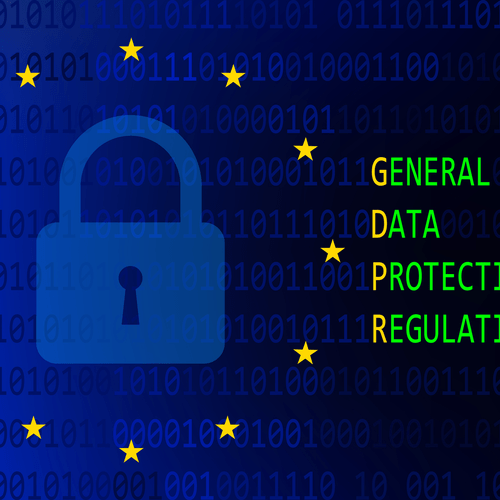What Is Blockchain Enabled Identification Management?
Blockchain is seen as a brand new enabling technology with very unique characteristics that is expected to revolutionize many industries, including identity. While blockchain know-how continues to be in its infancy, new transformative ideas and ideas are actively being evaluated and piloted. With the ability of blockchain-based digital id and biometrics, we will remodel the future of international travel…and beyond. Governments, companies and educational establishments are turning to blockchain as a proven method to enable a safe and trusted infrastructure and improve services. Citizens with officially recognized forms of identification continue to lack complete possession and management over their identities.

Moreover, these methods prove id and infrequently require users to share private particulars repeatedly, rising the risk of information theft or misuse. Blockchain identification verification can be utilized in the retail or eCommerce sector to ascertain proof of authenticity, ensuring compliance with industry-level laws. By making use of blockchain-based digital identities, companies can enhance belief and security in online transactions, decreasing fraud and providing a seamless customer expertise.
Furthermore, the scalability of blockchain allows the network to deal with a vast variety of transactions effectively. As the demand for digital identification services grows, blockchain can seamlessly expand to accommodate more customers and processes, making it a perfect selection for large-scale implementations. One blockchain-based D-ID system is Chainlink’s privacy preserving oracle technology DECO—developed by Chainlink Labs Chief Scientist Ari Juels, researcher Fan Zhang, and others.
Information Insecurity
Blockchain digital id utilizes the potential of blockchain decentralized know-how to offer transparency and safe id verification and management techniques. Blockchain’s transparent and decentralized nature ensures that each one identity-related transactions are recorded on an immutable ledger, creating an auditable trail of all actions. This complete history of who accessed the information and when strengthens accountability and builds trust between users and service suppliers.
In 2022, the Identity and Access Management market was valued at $17 billion and is expected to achieve $43 billion by 2029, according to Statista. And blockchain is seen as a lightweight of hope in this scenario, signaling a brand new era of improved information security, and user-centric control for managing digital identities. In today’s business networks, users are pressured to create and maintain duplicate identities leading to an identification https://www.globalcloudteam.com/ sprawl. The use of blockchain’s distributed ledger capabilities has potential to allow users to retain control of their identity. Blockchain consulting companies provide expert steering and assistance in understanding the potential benefits and challenges of adopting blockchain for id administration. Experienced consultants can assess an organization’s wants, design tailor-made solutions, and supply a roadmap for successful implementation.

With digital identification blockchain, customers regain control over their private data. In conventional systems, individuals typically surrender their knowledge to numerous organizations with out clear consent and understanding of how their info will be used. Blockchain permits users to grant specific permissions for information entry and determine who can view their data, guaranteeing higher management over their digital identities. Additionally, blockchain’s cryptographic mechanisms make it extremely difficult for malicious actors to forge or manipulate identities, reducing the danger of identification fraud considerably. Biometric authentication can also be integrated with blockchain-based identities to supply a further layer of security.
Blockchain Digital Identification Administration Standards & Protocols
While new D-ID storage solutions may alter how information is stored, the truth is that a lot of data remains to be stored in trusted databases. Many users/institutions could choose the security of entrusting a high-security custodian to protect that data, especially governments and large enterprises. Self-sovereign identity is a concept the place individuals have possession and management over their information with out relying on a centralized database or authorities to verify identities. The principles of self-sovereign id emphasize user management, transparency, interoperability, and consent.

Known Traveller Digital Identity or KTDI is a World Economic Forum initiative that brings collectively a global consortium of people, governments, authorities and the journey trade to enhance security in world travel. Your online presence, which incorporates pictures, purchase choices, website usage trends, and bank account data, types part of your digital id. However, discrepancies exist in how digital id is displayed throughout numerous platforms, similar to banking systems, social networking sites, and telecom networks. As the world begins to examine who owns and should profit from user-generated knowledge, blockchain-based self-sovereign identities and decentralized fashions give customers control and carves a path to knowledge monetization. These identities might be created impartial of nation-states, corporations, or global organizations.
Tips On How To Construct Trust In A New Digital World
Each report within the database is called a block and is cryptographically linked to the previous block. Since the same transaction is recorded over multiple, distributed database systems, there isn’t essentially a single point of failure in the system. The capability of social transformation projects and the assurance of financial benefits for numerous communities by citizen welfare measures highlight the necessity for blockchain and identity administration. One such digital identification software example is Singapore’s Smart Nation plan’s National Digital Identification, or NDI, system. The NDI system would make citizens’ involvement in e-government services more secure.

Yes, blockchain-based identification administration systems may be designed to adjust to data protection regulations. While blockchain ensures transparency, it also supports privateness through cryptographic encryption and selective disclosure of information. By adhering to finest practices and using consent-driven mechanisms, organizations can construct id solutions that align with information safety legal guidelines, providing customers with safe and compliant digital id providers. With the advent of Bitcoin in 2008, blockchain expertise arose, giving an efficient, transparent, and decentralized system distributed across a network of computers with the help of a blockchain development company. Have you ever imagined gaining full management of your personal data and deciding how it’s used?
By establishing a secure and transparent foundation for digital identities, blockchain can foster larger belief and collaboration throughout diverse ecosystems. Blockchain id options enable the secure transfer of medical information, bettering privacy and streamlining healthcare choices. With decentralized identifiers, patients control their well being knowledge, giving entry to healthcare providers as and when wanted – all this while making certain privateness and safety of delicate information. Self-sovereign id is likely considered one of the key elements of identification administration blockchain.
Okta is working closely with clients, consortiums and partners as we flush out trade particular use instances related to blockchain and identification. To spotlight a selected example, Okta is working with some key prospects in Canada who’re extending their B2B and B2C applications to streamline cumbersome and expensive Identity Proofing flows leveraging blockchain. For example, on 31st August, 2017, the Illinois Blockchain Initiative (IBI), a consortium of Illinois state and county businesses kicked off a pilot program to put delivery certificates on a blockchain. The IBI is working to promote the use of “self-sovereign” digital identities that may remain beneath a user’s control, able to quick and secure validation without the need for a centralized repository. Accenture, together with Microsoft and Avanade, created a blockchain-based identification management software that was offered at ID2020 Summit.
Since 2017, almost 600 million items of personally identifiable information, together with addresses and credit card particulars, have been taken from firms. Blockchain uses a mix of public and private keys to make sure secure transactions. A public key is a user’s tackle on the blockchain, whereas a personal key is secret data that allows them to initiate trades. Only individuals with the correct personal key can access and share their knowledge for identity verification, ensuring their information integrity and safety. Centralized identity techniques typically retailer user knowledge in silos, giving organizations control over individual data.
What Are The Advantages Of Using Digital Id With Blockchain In The Future?
Traditional identification verification processes typically involve considerable administrative and infrastructure bills. With blockchain, these prices may be significantly reduced because it eliminates the need for intermediaries and central authorities. Blockchain allows DPKI by creating a tamper-proof and trusted medium to distribute the uneven blockchain identity management verification and encryption keys of the identification holders. Decentralized PKI (DPKI) allows everybody to create or anchor cryptographic keys on the Blockchain in a tamper-proof and chronologically ordered means. These keys are used to permit others to verify digital signatures, or encrypt knowledge to the respective identification holder.

This is where blockchain-based digital identification is obtainable in, providing a glimpse right into a way forward for empowered individuals and a more environment friendly digital ecosystem. Blockchain offers a distributed network that enables everybody to access and verify the information enhancing the trustworthiness and transparency of managing digital identities. This increases the confidence of the users of blockchain-based digital identification as they confirm the knowledge themselves. As a part of the ID2020 partnership, we’ve developed a unique digital identity prototype to modernize id management for organizations and people.
Blockchain-based digital identities can act as common passports, allowing you to seamlessly confirm your identity throughout totally different platforms. This interoperability eliminates the need for repetitive verification procedures, saving time and effort for each individuals and organizations. Blockchain offers a new approach to id verification, revolutionizing the method by offering strong and decentralized solutions. The article delves deep into understanding blockchain digital identity, explores the need for blockchain technology, and highlights its benefits, use cases, and standards and protocols. Furthermore, the immutability of blockchain ensures that when info is recorded, it can’t be altered or tampered with, providing an extra layer of trust and transparency.
Is Blockchain Mental Property Protection The Answer To Creators’ Copyright Problems?
In today’s digital landscape, people usually have their digital identities and private data scattered throughout various platforms, each with its verification course of. Blockchain can create a unified, interoperable system the place one’s digital identification paperwork can be used across multiple platforms as quickly as verified on one platform. This not solely enhances consumer comfort but additionally streamlines processes for companies. Traditional identity verification strategies show their age, usually proving prone to information breaches and inefficiencies. Blockchain emerges as a beacon of hope on this situation, heralding a new era of enhanced information security, transparency, and user-centric control to handle digital identities.
It can facilitate safe and real-time transactions, decreasing identity theft and fraud. Blockchain digital identity solutions can revolutionize conventional, expensive, and slow processes. By utilizing decentralization-based identities, businesses can confirm customer information cost-effectively and simply. All they need to do is read the blockchain where customers have shared their data for public entry. These identities usually are not simply safe however are also reusable around a number of platforms, eradicating the necessity for patrons to perform the identical KYC processes again.
What’s Blockchain-based Id Management?
In the world of blockchain, however, private keys are used to confirm cryptocurrency transactions. Daemon wallets, meanwhile, are instruments used to automate the authorization of transaction requests to and from blockchains, for instance gaming platform Enjin. Without a daemon wallet, it will be essential to sign every in-game blockchain transaction through a crypto pockets.





